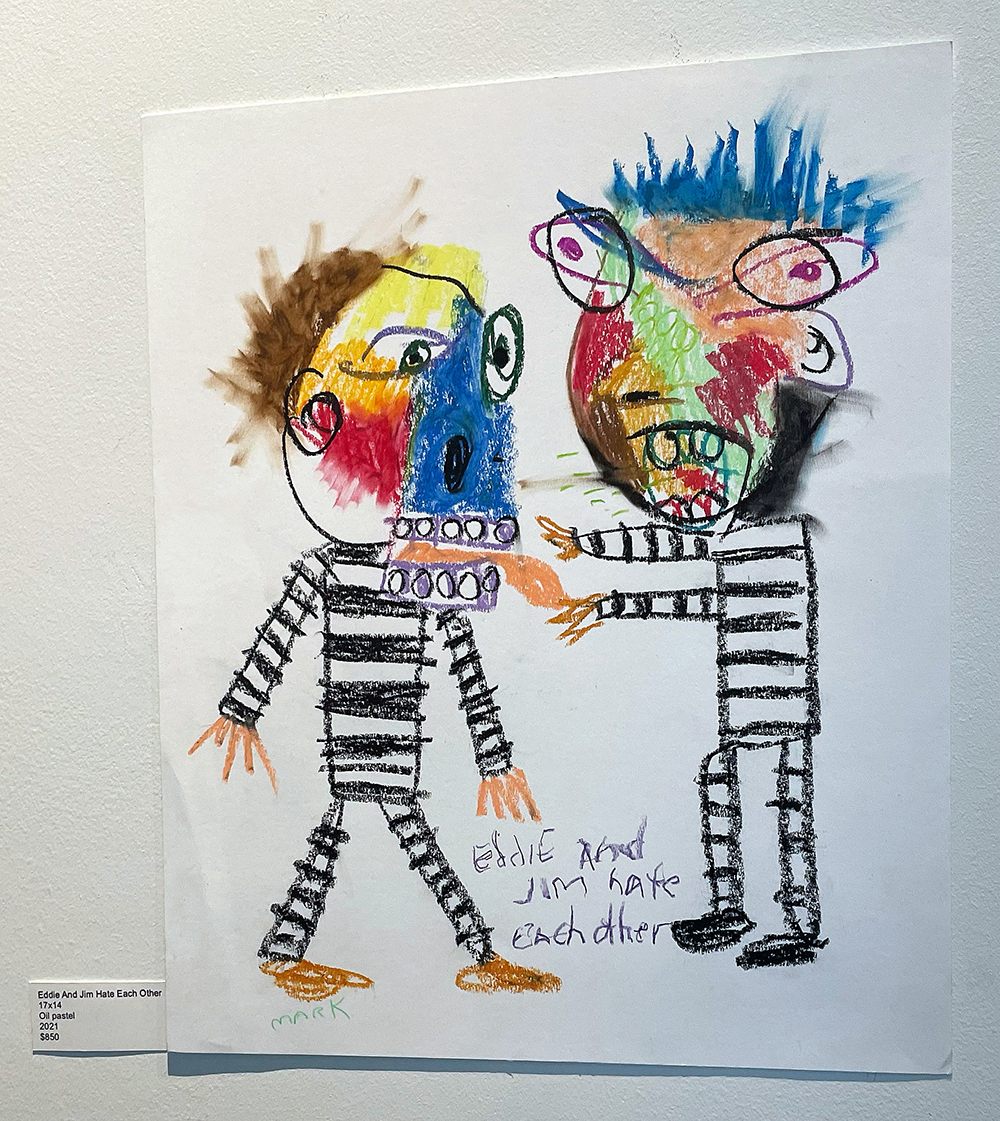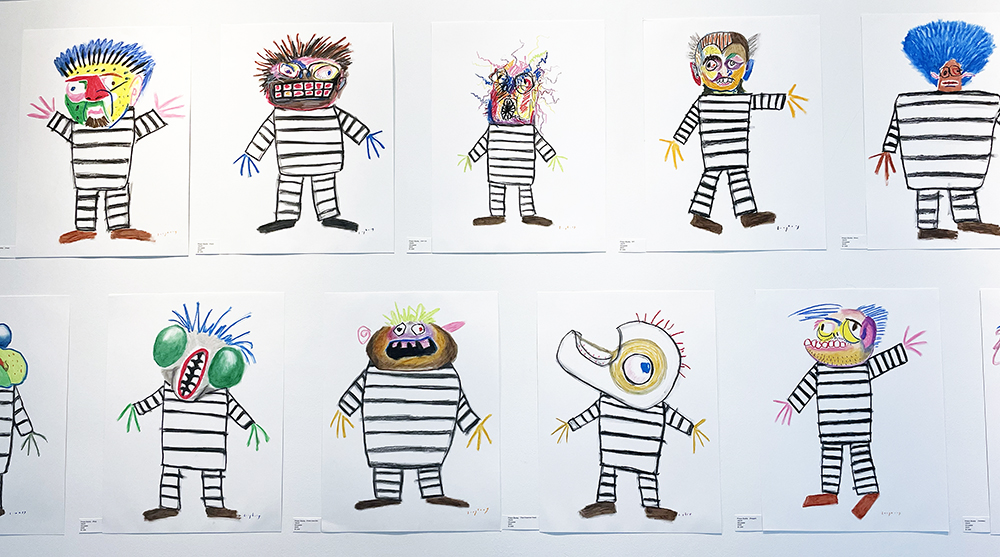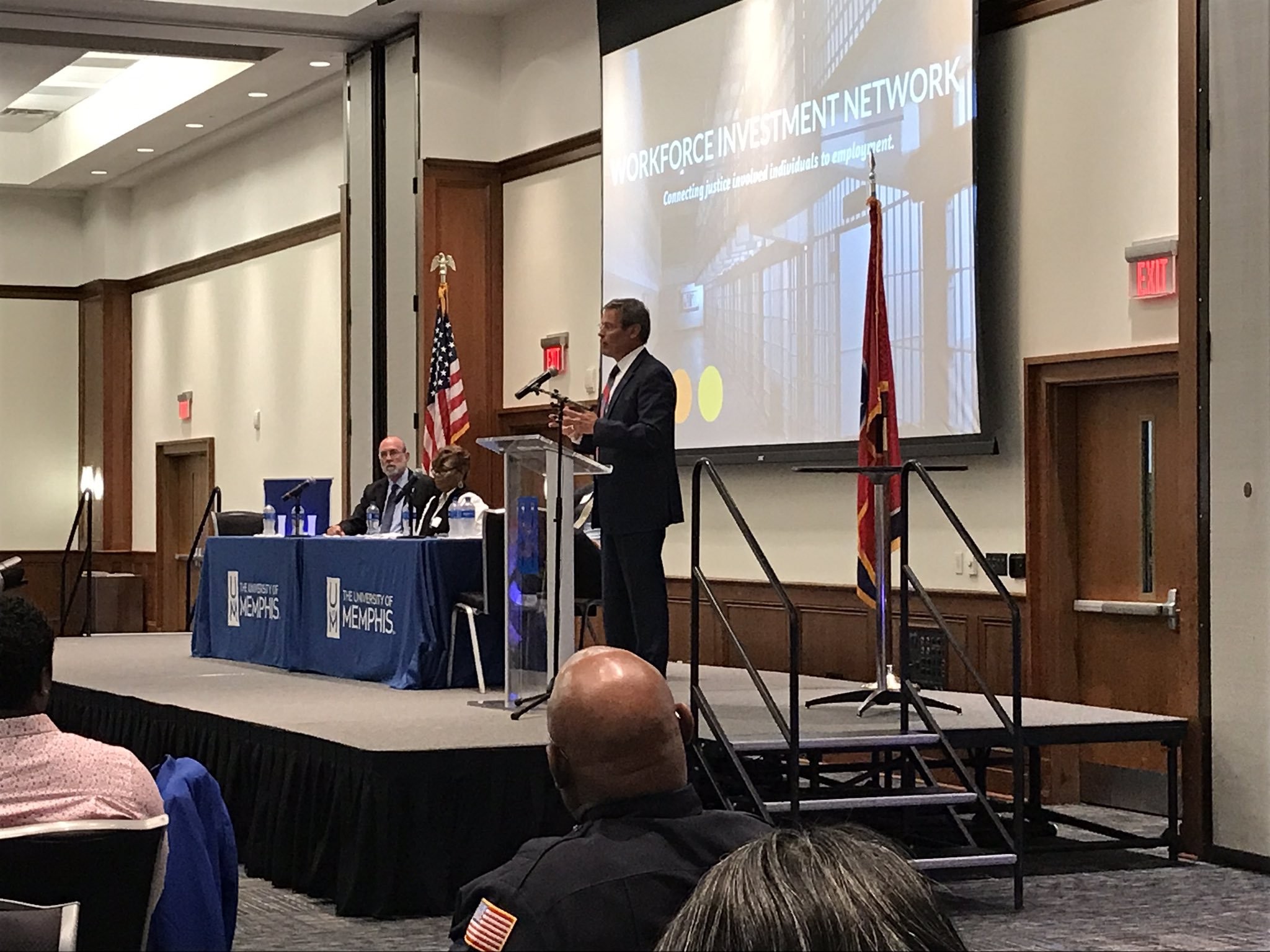In 2012, Mark Loughney committed a crime in Dunmore, Pennsylvania, and went to prison for 10 years for it. He hurt people, he knows and regrets as he looks back, but during his time, he rediscovered his humanity and that of the men incarcerated with him through drawing their portraits by the hundreds. To see those portraits side by side, even just 20 of them, “was really overwhelming to me. And I realized that people need to see that we are people still in prison. And that even though we’re somewhat voiceless, that we can still have a bit of a voice in a way,” Loughney said in an interview with Just City’s Permanent Record podcast.
Those portraits went on to be featured in galleries across the country, including MoMA, and in publications like The New Yorker and The Atlantic. Some of the portraits are on permanent display in Just City’s office here in Memphis.
“He uses his art to deliver the same kind of message that we are trying to deliver at Just City,” says Josh Spickler, Just City’s executive director. That message is one of accountability and one of reforming the justice system to be based in fairness. Since hearing Loughney’s story, Just City has kept in touch with the artist, who has been released and still works on justice-inspired art.

In fact, some of his work is now on display at Benjamin L. Hooks Central Library in his “Prison Buddies” exhibition. Unlike the realistic drawings that drew attention to him initially, most of these works are cartoonish portraits of those incarcerated, with a dark sense of humor. “They’re kind of like caricatures of people’s personalities,” Loughney said to Just City. “It kind of spread to people that I was in prison with, who saw them and asked me to do a version of them. And that’s how it all started. And I started to see this real value in them, that there’s such a relatability because they’re very childlike, but they hold such content that is otherwise hard to bridge with people, to talk about these issues like mass incarceration.”
“[Mark] is not alone,” Spickler adds, “in that there are people who are in prisons and they have talent and they have other people who love them. That’s the main reason why we wanted to bring his artwork here — because it helps us think more deeply about what we do as a community when one of us harms another. Mark harmed people, and he was held accountable for it. But he was able to maintain some of his humanity for his art. And we need to work really hard to make sure that that is possible way more often.”
You can listen to Spickler interview Loughney on the Permanent Record wherever you get your podcasts. Check out episodes 45 and 58.
“Prison Buddies,” Goodwyn Gallery at Benjamin L. Hooks Central Library, 3030 Poplar, on display through June 30.

